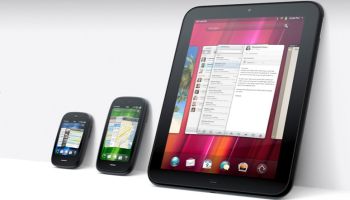

Hewlett-Packard is mulling a possible expansion of webOS’s reach to include household appliances and cars.
“We’re looking at expanding the base and bringing to the webOS community an ecosystem that inspires developers out there,” Stephen DeWitt, in charge of webOS for HP, told the Wall Street Journal, noting that there was considerable interest in the platform.
He declined to mention specific manufacturers or developers, however.
Some analysts are sceptical about HP’s plan to broaden webOS adoption through vehicles and appliances. They note that many manufactures already have long-standing relationships with operating systems integrated into their products.
In June, Bloomberg reported that HP was in discussions with Samsung over porting webOS onto the latter’s smartphones. That detail, which came from unnamed “people with knowledge of the discussions,” was unconfirmed by either company. HP has made no secret of its intentions to port webOS onto other manufacturers’ devices, with a 9 March Bloomberg report quoting CEO Leo Apotheker as saying the move could create a “massive platform.”
In March 2011, HP announced plans for a version of webOS by the end of 2011 to run within the Microsoft Windows operating system, and to be installed on all HP desktop and notebook computers in 2012. The platform uses multi-touch gestures to navigate on the touch-screen, but does not natively include a virtual keyboard application as the devices include slide-out keyboards. Users can obtain virtual keyboards through patching.
HP inherited webOS when it purchased Palm for $1.2 billion (£725m) in 2010. While Palm had limited use of the operating system to its smartphones, HP’s intentions are much broader; the company has designs on installing the OS on smartphones, tablets, laptops and desktops. In theory, webOS would allow HP to create Apple-style synergy between products in different categories. Unlike Apple, though, HP’s aggressive moves risk alienating a crucial partner – Microsoft.
Regardless, HP is having enough trouble trying to get consumers to experience webOS on devices other than smartphones, including its highly publicised tablet, the TouchPad. Despite a recent price cut, reports are coming in that sales of the tablet – designed to be a major competitor to Apple’s iPad – are flagging.
“According to one source who’s seen internal HP reports,” read an 16 August piece by Arik Hesseldahl on AllThingsD, “Best Buy has taken delivery of 270,000 TouchPads, and has so far managed to sell only 25,000.”
Meanwhile, a report from a Taiwanese news agency suggests HP is also prepping a 7-inch tablet device that could also run the company’s webOS operating system, which also powers the TouchPad. The publication reported an unnamed subcontractor for Inventec Corp, a contract manufacturer of PCs in Taiwan, saying HP had placed a large order for tablet devices from Inventec.
OpenAI chief operating officer Brad Lightcap to oversee international expansion as company consolidates lead in…
Chinese researchers publish details on device that could wreak havoc on undersea communications cables in…
Former Intel chief Gelsinger expands role at Gloo, becoming executive chairman and head of technology…
MEPs add to Commission pressure for second EU Chips Act amidst industry calls for renewed…
Smartphone maker Xiaomi reportedly raises about $5.5bn in Hong Kong share sale as it invests…
BYD's Qin L EV sedan starts at about half the price of Tesla's Model 3,…